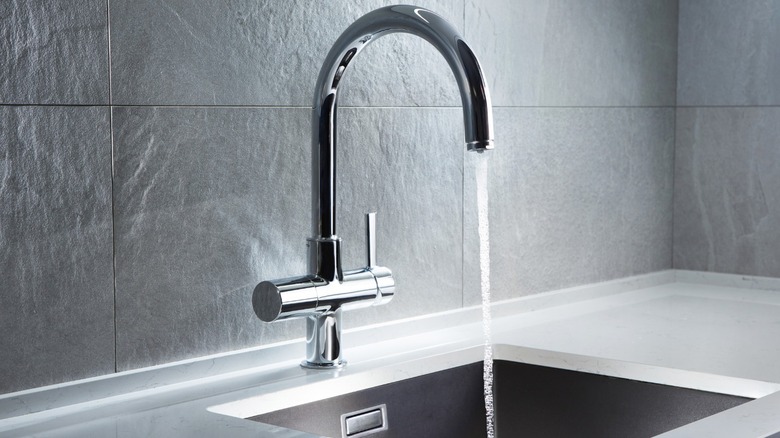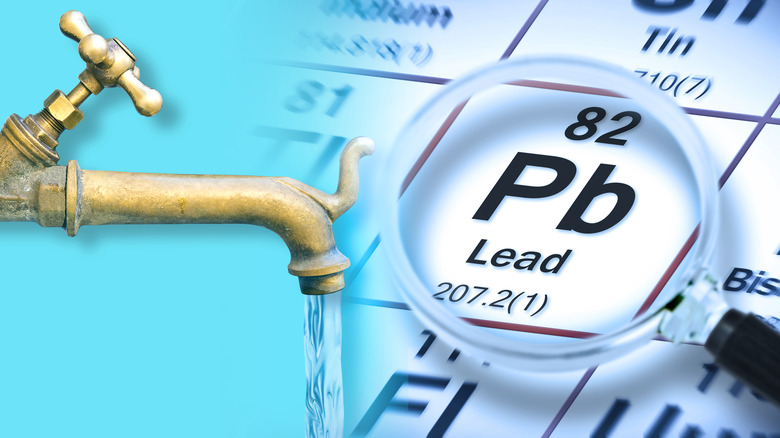Why You Should Never Cook With Hot Water
If you hear it enough times growing up, you find yourself repeating it as an adult. Are you guilty too? Warning your five-year-old that swimming after eating will give them debilitating cramps may be the first sign that we are turning into our parents and time to fact-check some of the wisdom passed down from previous generations. From medical advice to cooking techniques, old wives' tales have been dispensed, with authority, since the bible was written promoting superstitions like swallowed chewing gum stays in your stomach for seven years and human urine heals jellyfish stings (gross and no it doesn't) per Wonderopolis.
While some myths boil down to good advice, like don't kiss frogs, some can lead to overcooking expensive cuts of meat or have dangerous repercussions. The American Society for Microbiology has dispelled the longtime cultural pseudoscience known as "the five-second rule," discovering food can pick up bacteria immediately when dropped on the floor, so think twice before eating that cookie you dropped on the floor next time.
Myths vary between cultures and religions. Here in the U.S., several legends surround the water in your kitchen, including the warning "never drink hot water from the tap." While cooking myths have led to decades of cooking pork until it's dry and overcooked, it's true that you should never drink hot water from the tap, and here's why.
Hot water dissolves contaminants
It's estimated that drinking water accounts for 20% of a person's lead exposure. Lead is found throughout our environment, in house paint, dust, pottery, and the heirloom pieces of pewter grandma left us. Unfortunately, it is also found in our drinking water.
According to the Environmental Protection Agency, lead is leached into our drinking water due to household plumbing eroding over time. Older homes may contain lead pipes, and before 1986, lead-based solder was used to connect pipes and faucets. As water sits in those pipes, it absorbs lead, dispensing it when the faucet is turned on. Since hot water dissolves lead more quickly than cold water, the EPA suggests using cold water for cooking and drinking to minimize the risk of lead poisoning. In addition, flushing the system for 15 to 20 seconds when the water is stagnant for longer than six hours is advised.
The CDC says infants, young children, and pregnant women are at the most significant risk for complications, which can lead to neurological and intellectual disabilities. Infants that drink baby formula or concentrated juices mixed with tap water have higher exposure rates, and children can show signs of toxicity with much lower levels of lead than adults.
Lead builds up in the body over time and is stored in our bones, blood, and tissues. Short-term exposure to high levels of lead can cause high blood pressure, infertility, anemia, and weakness and damage the brain, red blood cells, and kidneys. High levels of lead can lead to death.

